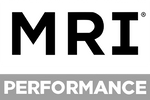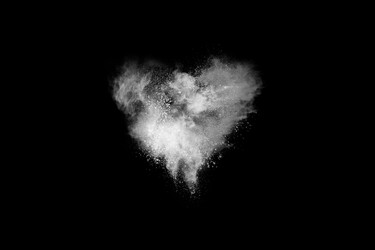Creatine for Heart Health: Exploring Benefits for Cardiac Disease
Posted by MRI Performance on 4th Aug 2025
The Heart of the Matter: How Creatine Can Help with Cardiac Disease/Abnormalities
The human heart is the ultimate endurance machine, a tireless pump that beats an average of 100,000 times a day to sustain life. We often think of heart health in terms of diet, exercise, and cholesterol, but what if there was another powerful way to support this vital organ at a cellular level?
For years, creatine has been celebrated for its role in fueling skeletal muscles and boosting athletic performance. Yet, new and compelling research is revealing a surprising truth: creatine may be just as important for the health of your cardiac muscle.
This blog post will pivot from creatine’s familiar reputation and delve into its lesser-known, yet incredibly significant, potential to support the heart. We’ll explore the science behind its cardiac benefits, its potential role in conditions like congestive heart failure, and why it may be a valuable ally in the fight for a healthier heart.
The Heart's Insatiable Energy Demand in Disease
Like every muscle in the body, the heart’s function is powered by ATP (adenosine triphosphate). But unlike your biceps, the heart cannot rest; it requires a continuous and massive supply of energy to keep pumping. When the heart is healthy, it has a robust energy system to meet this demand.
However, in the face of cardiac disease or abnormalities, this energy system can become compromised. In conditions like congestive heart failure (CHF), the heart muscle weakens and struggles to pump blood efficiently. A major reason for this is a "cardiac energy starvation," where the heart’s ability to produce and utilize ATP is significantly reduced.
This energy deficit leads to fatigue, reduced contractility, and a downward spiral in heart function. This is where creatine’s unique role becomes critical. The heart muscle, much like skeletal muscle, relies heavily on the creatine-phosphocreatine system as a rapid energy reserve.
When ATP levels begin to drop, phosphocreatine quickly donates its energy to regenerate ATP, ensuring the heart has the fuel it needs to continue its essential work.
Creatine's Mechanisms of Cardiac Support
The benefits of creatine for the heart extend beyond simply providing an energy buffer. Its mechanisms of action offer a multi-faceted approach to supporting cardiac health:
- Enhanced Energy Production: By increasing the phosphocreatine stores in the myocardium (the heart muscle), creatine directly boosts the heart's ability to generate ATP. This can lead to improved overall cellular energetics, which is foundational to a heart's strength and resilience.
- Improved Contractility: A heart muscle with more available energy can contract more powerfully and efficiently. Research suggests that creatine supplementation can lead to enhanced myocardial contractility, improving the heart’s pumping action—a critical factor in conditions like CHF.
- Cellular Protection: Creatine has antioxidant properties, helping to protect heart cells from oxidative stress and inflammation. It also supports healthy mitochondrial function—the power plants within cardiac cells.
- Improved Exercise Capacity: By improving the heart's energy efficiency, creatine can help boost a patient's ability to exercise—an essential part of cardiac rehabilitation.
Promising Research for Specific Cardiac Conditions
While research is ongoing, the evidence for creatine’s benefits in cardiac health is promising:
Congestive Heart Failure (CHF): Multiple studies have explored creatine’s role in CHF. Research has shown that patients supplementing with creatine, alongside standard medical treatment, experienced improvements in muscle strength, exercise capacity, and even left ventricular function. These benefits can directly improve quality of life.
Ischemic Heart Disease: Research has also investigated creatine’s potential to protect the heart during ischemic events (oxygen deprivation), such as heart attacks. Creatine may help stabilize heart cells and reduce damage when blood flow is restored.
Important Medical Disclaimer
The information provided in this article is for educational purposes only and is not a substitute for professional medical advice. Creatine is not a primary treatment for heart disease or any cardiac condition. Always consult with your cardiologist or a qualified healthcare professional before starting any new supplement regimen, including creatine.
Practical Use: A Crucial Conversation with Your Cardiologist
For individuals with cardiac conditions, the decision to supplement with creatine must be made in consultation with a medical professional. Your cardiologist can assess your condition and determine if creatine is a safe and potentially helpful option.
You may consider discussing high-quality supplements like MRI Performance Creatine Monohydrate—which provides a pure, clinically-dosed form of creatine with no unnecessary additives. Also, remember that hydration is key when using creatine, especially for individuals with heart concerns.
Conclusion
The heart is a wonder of nature, and creatine is emerging as a powerful, scientifically supported tool for its care. While creatine’s role in athletic performance is well-known, its potential to support cardiac energy and function is an exciting frontier in health and wellness.
By providing energy support, protecting heart cells, and potentially improving function in conditions like CHF, creatine is more than just a sports supplement—it’s a potential ally for your most vital muscle.

